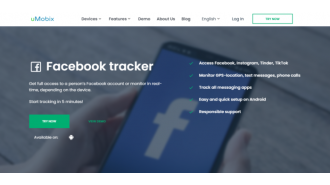A skeptic on Wall Street raises concerns about the potential failure of AI.
Experts estimated $1 trillion would be used for data centers, utilities, and applications to build AI businesses. Jim Covello believed these expenses were a barrier to solving real-world issues affordably.

As Jim Covello drove from San Jose to San Francisco, he couldn't help but notice the abundance of billboards promoting artificial intelligence. It seemed like everywhere he looked, there was another sign advertising some kind of AI technology, from Writer Enterprise AI to Speech AI. As the head of stock research at Goldman Sachs, Covello couldn't help but feel a sense of skepticism towards this growing trend. It reminded him of the economic bubble that surrounded cryptocurrency not too long ago.
Covello's doubts about the potential of AI were solidified three months ago when he published a research paper that questioned whether businesses would see a worthwhile return on their massive investments in AI. He specifically called out generative AI, which has the ability to summarize text and write code, for its high error rate and doubtful ability to solve complex problems. His skepticism was shared by others in the industry, including a partner at venture firm Sequoia Capital who raised similar concerns in a blog post.
This wave of doubt had a significant impact on Wall Street, causing a reassessment of the AI market and a decline in AI-related stocks. Goldman's own AI stock portfolio, managed by a separate arm of the firm, dropped by 7% from its peak in July. This pause in the AI arms race was unprecedented, as the tech industry typically spends big on new technology transitions, such as the personal computer and internet revolutions, without any major repercussions for at least five years.
Covello's cautious approach to AI is not surprising, given his experience with the dot-com bubble as a semiconductor analyst. He saw firsthand how quickly things can go south when a tech trend fails to live up to its hype, and he was not willing to see history repeat itself. In fact, he joined an internal team at Goldman that evaluates potential AI services for the firm to use, and his reviews were not favorable. He found the technology to be expensive, cumbersome, and not as "smart" as advertised.
While some may argue that Covello's concerns are premature, his doubts have sparked important conversations within Goldman and among its clients. After the publication of his paper, George Lee, co-head of the firm's geopolitical advisory business, challenged Covello in an email, stating that AI has the potential to save workers time and improve productivity. Lee urged him to be patient and give the technology time to evolve and become more accessible and affordable.
The email exchange between Lee and Covello prompted Goldman to host private debates between the two, with Lee taking on the role of the optimist and Covello playing the skeptic. These discussions were long overdue, according to Jim Morrow, CEO of Callodine Group, a Goldman client based in Boston. He believes that Covello's warning bell about the reality of AI has caused people to question the hype and take a closer look at what is really happening in the industry.
In the end, it's important to remember that AI is not a magic solution that can instantly solve all of our problems. As with any new technology, it takes time to refine and improve, and it may not live up to its initial promises. But that doesn't mean we should abandon it altogether. As we continue to debate the potential of AI, it's crucial to ask important questions and approach it with a healthy dose of skepticism. Only then can we truly harness its power and make it work for us.
As Jim Covello sat behind the wheel of his car, cruising up Highway 101 from San Jose to San Francisco, he couldn't help but notice the abundance of billboards advertising artificial intelligence. In fact, he counted nearly 40 of them along the way, each one promoting the latest and greatest in AI technology. As the head of stock research at Goldman Sachs, Covello couldn't help but feel a sense of skepticism towards this AI craze, especially with the recent boom in crypto-related billboards being replaced by those touting AI.
"It wasn't that long ago that every billboard was about crypto," Covello reflected. "And now, they're all about AI."
Covello's doubts about AI were solidified three months ago when he published a research paper that questioned whether businesses would actually see a profitable return on the estimated $1 trillion that will be spent on AI in the coming years. Specifically, he expressed concerns about generative AI, which has the ability to summarize text and write software code, but also makes a significant number of mistakes. In his eyes, this raised doubts about whether AI could truly solve complex problems with any degree of reliability.
His paper caused quite a stir, especially since it coincided with a blog post by a partner at venture firm Sequoia Capital, who also had doubts about the potential of AI. This skepticism marked a turning point for AI-related stocks, leading to a reassessment of Wall Street's current hottest trend.
Due to Covello's concerns, Goldman's AI stock basket, which includes big names like Nvidia, Microsoft, Apple, Alphabet, Amazon, Meta, and Oracle, has declined by 7% from its peak on July 10. This has sparked a debate among investors and business leaders about whether the staggering costs of AI can truly be justified.
But this pause in the AI race is occurring early on. The tech industry has a history of investing heavily in new technologies, such as during the personal computer and internet revolutions, which typically take about five years or more before the true impact is felt.
Covello has seen firsthand the effects of tech booms and busts. As a former semiconductor analyst, he witnessed the bursting of the dot-com bubble and the subsequent job losses of his colleagues. More recently, he joined an internal team at Goldman that evaluates AI services for the firm to use. In his review, he found these services to be expensive, cumbersome, and not advanced enough to truly make employees smarter.
Some may argue that it's too soon for Covello to be calling for caution, citing the tech industry's history of applications emerging over time as the technology is refined and made more readily available and affordable. Goldman's co-head of the geopolitical advisory business, George Lee, even challenged Covello in an email, stating that AI has the potential to save workers time and improve productivity, urging him to be patient.
In an interview, Lee explained, "The long-term impact of platform shifts is that applications emerge over time as that technology is refined, made more readily available, and made cheaper."
However, Goldman's clients were eager to hear more about Covello's concerns. At their request, the firm began hosting private debates between Lee, as the bull, outlining his optimism about AI, and Covello, as the bear, explaining his pessimism. This conversation was long overdue, according to Jim Morrow, CEO of Callodine Group, a Boston-based client of Goldman.
"AI had captured the market zeitgeist," Morrow stated. "Having someone from a firm like Goldman ring the bell and say, 'Hey, it won't become a reality the way everyone thinks' had people asking important questions about what was actually happening."
And while AI may be the current buzzword in the tech world, there are still other issues at play. For instance, Apple's AirPods Pro recently unveiled a new hearing aid feature, bringing attention to a problem that many people would rather ignore. In another example, a Denver developer is suing the wife of a drinkware CEO in a defamation spat involving a dude ranch. Plus, two Denver executives are leaving the parent company of Richmond American Homes at the end of the year, and there are even new ways to use images from your phone to search the web. Finally, the sale of Atomic Cowboy's real estate on Denver's East Colfax for a whopping $3 million is making headlines.
In the end, it's important to take a step back and carefully consider the potential impact of any new technology, including AI. As Goldman's clients have learned, it's crucial to have a balanced and informed perspective, especially when it comes to investing in the latest trends.
7 Views










